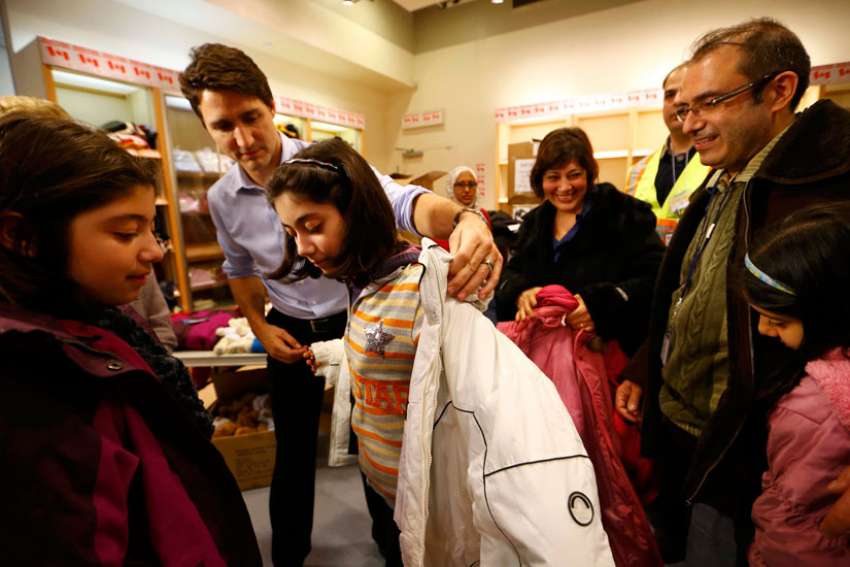"The Committee was moved by the willingness of Canadians to welcome Syrian refugees and the eagerness of Syrian refugees to become contributing members of Canadian society," said the Standing Senate Committee on Human Rights study, "Finding Refuge in Canada: A Syrian Resettlement Story" released Dec. 6.
"It was concerned, however, that the Government of Canada is not allocating enough resources to help them integrate."
Private and government sponsorship funds to support refugee families for one year are coming to an end for the first refugees who arrived after Prime Minister Trudeau's Liberal government promised to bring in 25,000 Syrian refugees. More money is needed to help families meet their basic needs, learn English or French, find educational and training opportunities and employment, the report said.
It urged the government to forgive the debts many refugees owe for their travel to Canada, or at least to not charge interest on them. It also called for the Canada Revenue Agency to ensure people receive their Canadian Child Benefit in a timely manner. "Refugees must be able to support themselves without resorting to food banks," the report said.
The Immigration Minister needs to work with the provinces and other levels of government to ensure mental health services are needed for those refugees who suffer from war-related trauma. He also must work with these partners to ensure "issues of domestic and gender-based violence can be addressed in a culturally sensitive way."
Immigration Minister John McCallum said the government has reinvested $18 million for language training, creating 7,000 new language spaces.
"We are providing assistance for child care for mothers who learn languages, so we are certainly heavily into this," he said. "We understand that when refugees come from a war-torn situation the adjustment will never be immediate. There will always be a period of adjustment, but we are doing everything in our power, along with provincial governments to support these new Canadians."
He also said the government will review the policy of travel costs that has been in existence since 1951, though Syrian refugees did have paid transport.
Canada has welcomed more than 30,000 Syrian refugees since November 2015, and another 20,000 applications are being processed, the report said. "The resettlement of so many refugees in such a short time has become a major national project."
Fifty-seven per cent have come under the government-assisted refugee program; 34 per cent have come under the private sponsorship program that includes churches, charities and families sponsoring extended family members. The rest have come under a joint-government and private sponsorship agreement plan.
The report said the privately-sponsored refugees have generally had an easier time integrating because they often came with higher levels of language and job skills than the government-sponsored groups that were chosen by the UNHCR as among the most vulnerable in the refugee camps. Many of these 17,627 government-sponsored refugees were illiterate in their native language, the report said.
However, private sponsorships do break down from time to time, especially when family members are involved, the report said.
Whether privately-sponsored, government-sponsored, or mixed, funding for the refugees is in place for a year. After that, they are expected to be self-sufficient and if not, must rely on provincial welfare assistance that is often less generous than the federal assistance, the report said.

